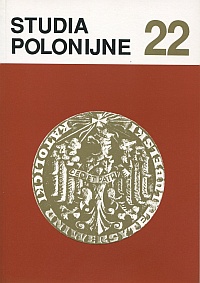The Everyday Life of Polish Immigrants in Belgium
Main Article Content
Abstract
The paper sought to show the question of mass migration of Poles to Belgium from 1989 onwards, especially from 1991, when Belgium repealed visas for the citizens of our country.
The paper seeks to show causes of contemporary migration from Poland to Belgium, its character and effects, the family situation of migrants, positive and negatives aspects of a longer sojourn abroad, the role of the Catholic Church, and the plans for the future of Polish illegal workers. Contemporary migration of Poles to Belgium has a paid character, although apart from material motivations the non-economic factors are also important. This wave of exile is characterized by a double illegality: sojourn and work. Illegality is the determining trait of the Polish migrants, among other things, condemning them to work in the informal sector of economy, without insurance, or welfare benefit. The text describes the everyday life of Polish workers, who despite the fact that they do not exist in official files, yet they have stayed on the territory of Belgium often for many years, take illegal jobs, maintain their own informal services, participate in Polish devotions, lead social life etc. This description is based on a research material gathered by the author during her field research conducted in Brussels in April 1998.
The situation of Polish illegal immigrants is an important issue due to its enormous scale, and due to the fact that it may persist in time. One should expect that as long as Polish employees are tolerated by the Belgian authorities, and the payments they receive are several times higher than an average payment in Poland, Belgium will remain an attractive destination for many Poles.

